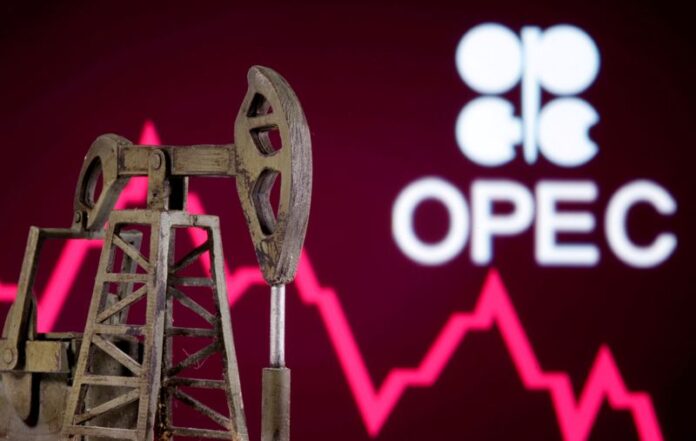LONDON: OPEC, Russia and allies were set on Saturday to extend record oil production cuts through July after crude prices doubled in the past two months on the back of their efforts to withdraw almost 10pc of global supplies from the market.
According to a draft declaration seen by Reuters as a video conference opened, the group known as OPEC+ was set to demand that countries such as Nigeria and Iraq which exceeded quotas in May and June compensate with extra cuts in July to September.
OPEC+ had initially agreed in April that it would cut supply by 9.7 million barrels per day (bpd) during May-June to prop up prices that collapsed due to the coronavirus crisis. Those cuts were due to taper to 7.7 million bpd from July to December.
Global benchmark Brent crude LCOc1 climbed to a three-month high on Friday to above $42 a barrel, after diving below $20 in April. Prices still remain a third lower than at the end of 2019.
“Despite the progress achieved to date, we cannot afford to rest on our laurels,” Algerian Energy Minister Mohamed Arkab, the current OPEC president, said as he opened Saturday’s talks.
The draft OPEC+ declaration said a joint ministerial monitoring committee, known as the JMMC, would now meet once a month until December to review the market situation.
Two OPEC sources said the group had already agreed to a one-month extension to cuts that have been made by its members.
Ahead of the talks, OPEC sources said Riyadh had been considering an extension to August or even December.
Saudi Arabia, OPEC’s de facto leader, and Russia have to perform a balancing act of pushing up oil prices to meet their budget needs while not driving them much above $50 a barrel to avoid encouraging a resurgence of rival US shale production.
The April deal was agreed under pressure from US President Donald Trump, who wants to avoid US oil industry bankruptcies.
Trump, who previously threatened to pull US troops out of Saudi Arabia, spoke to the Russian and Saudi leaders before Saturday’s talks, saying he was happy with the price recovery.
Nigeria’s petroleum ministry said Abuja backed the idea of compensating for its excessive output in May and June.
Iraq, which had one of the worst compliance rates in May, also agreed to additional cuts, OPEC sources said, although it was not clear how Baghdad would reach agreement with oil majors in the country on curbing output.
























